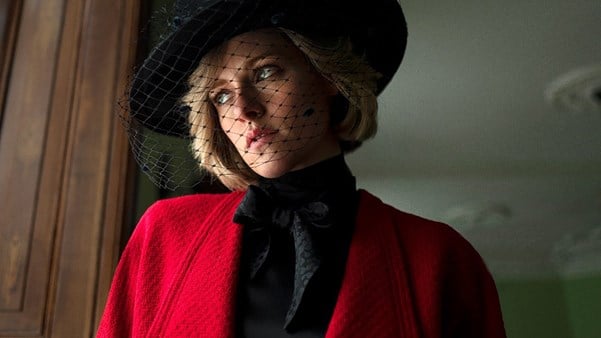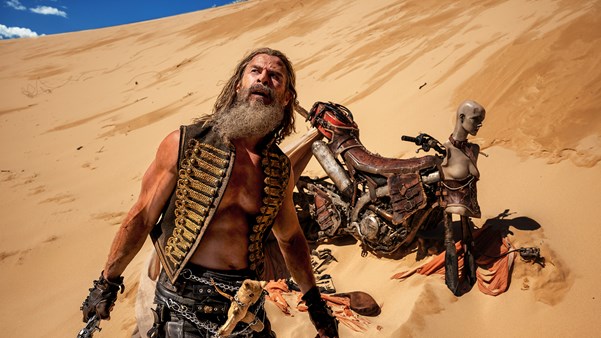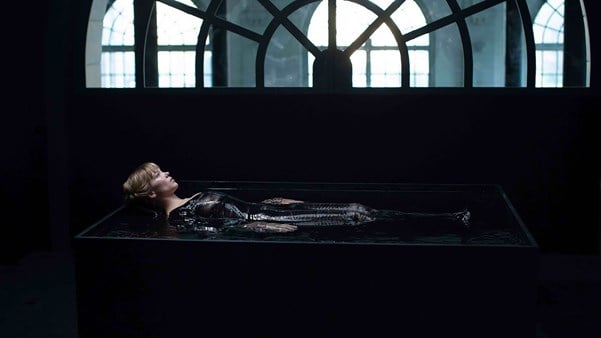As Fly Me to the Moon calls the Moon landing into question, Laura Venning asks whether cinema has a responsibility to uphold the truth – even in fiction.

‘I think we should have gotten Kubrick,’ murmurs Mad Men-style marketing executive Kelly Jones (Scarlett Johansson) after another mishap on her top-secret Moon landing set. Summoned by government agent Moe (Woody Harrelson), she’s been given the unenviable task of selling the Apollo missions to an unenthusiastic American public in 1969. Oh, and orchestrate a staged version of the Moon landing just in case the astronauts don’t make it there. Even Don Draper might find this assignment challenging, but thankfully Kelly is the master at bending the truth to push the product.
Fly Me to the Moon might sound like an ultra-paranoid space-race thriller that entertains one of the 20th century’s most enduring what ifs. But in the hands of Love, Simon (2018) director Greg Berlanti, and emerging screenwriter Rose Gilroy, it’s actually a sparkling romantic comedy in which Kelly has to keep the scheme from hunky but stern NASA launch director Cole Davis (Channing Tatum). Spoiler alert – Apollo 11 does in fact make it to the Moon, but Kelly has her artificial Armstrong and Aldrin bouncing around a soundstage on wires too, just in case.
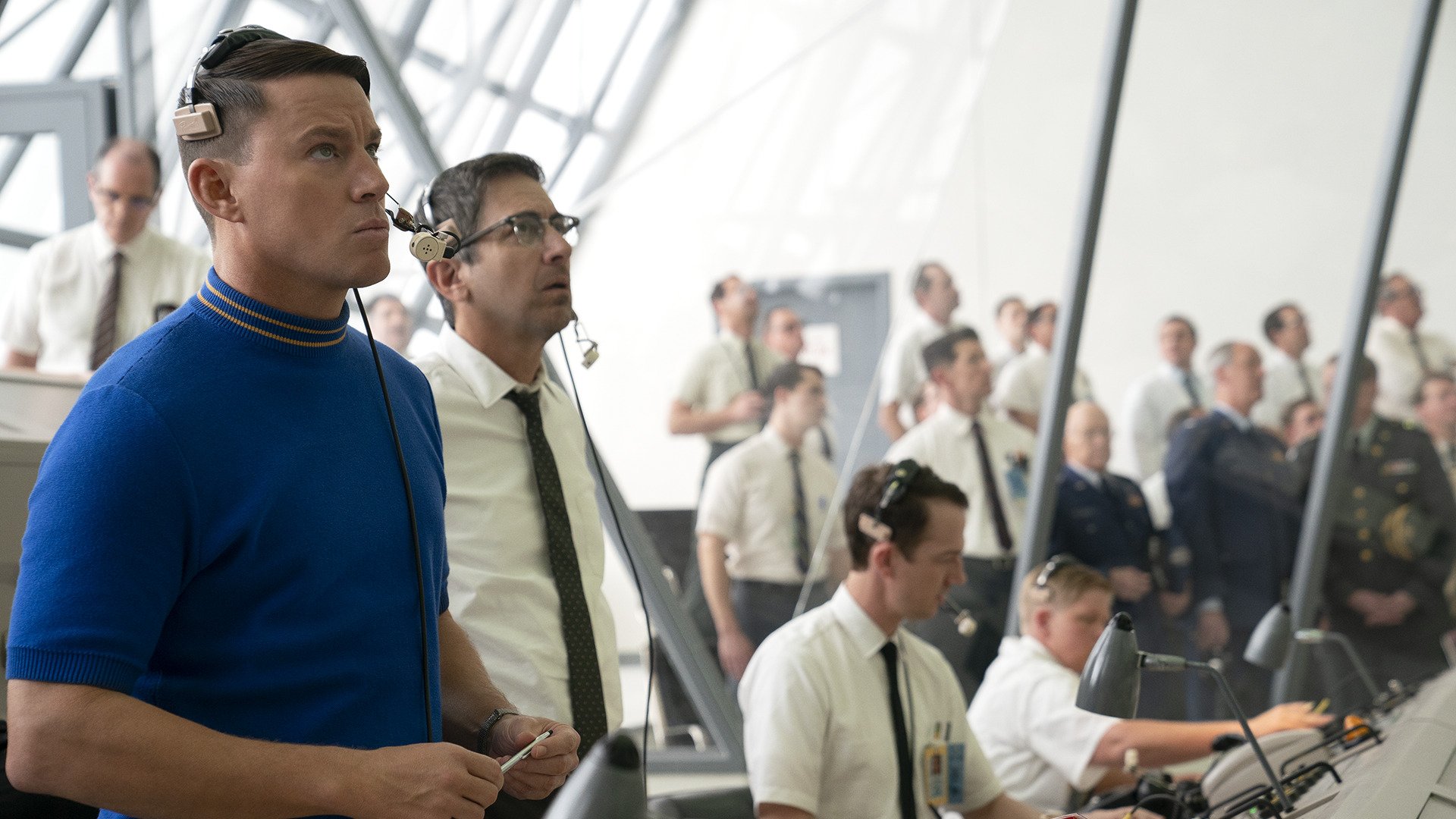
The Moon landing conspiracy theory has been around since at least the mid 1970s, with the addendum that Kubrick was recruited after he wowed the world with 2001: A Space Odyssey (1968) dating back to a press release by the Flat Earth Society in 1980. This was surely influenced by the success of Capricorn One (1978), which depicted a corrupt NASA faking a manned mission to Mars. As conspiracy theories go, Kubrick being the visionary behind the Moon landing seems relatively harmless. But does cinema have a responsibility to steer clear of anything that could be misconstrued as fact? It seems like a pertinent question in our current climate of disinformation, deep fakes and AI trickery.
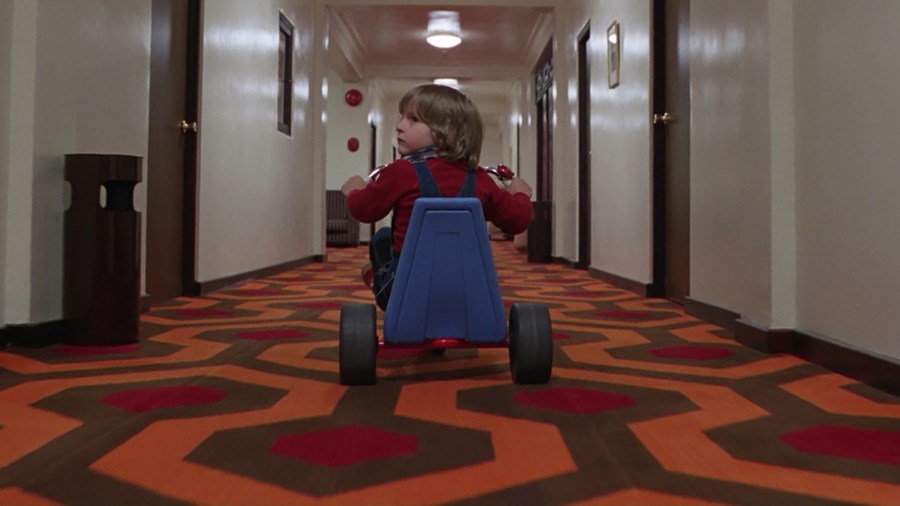
Room 237 (2012)
Documentary Room 237 (2012) is essentially a video essay in which eccentric individuals pitch their ideas about hidden messages Kubrick embedded in The Shining (1980). Theories range from symbols that point to the forced ‘civilisation’ of Native Americans, to commentary on the Holocaust. But the most provocative section addresses the Moon landing. The highly odd author Jay Weidner makes various unconvincing points, including that Room 237 in the Overlook Hotel is so named because 237,000 miles is the mean distance between the Earth and the Moon, and that the hotel carpet resembles the Apollo launching pad. The filmmakers behind Room 237 don’t throw their support behind any of these theories, but one might argue that to uncritically give them a platform is to implicitly do just that.
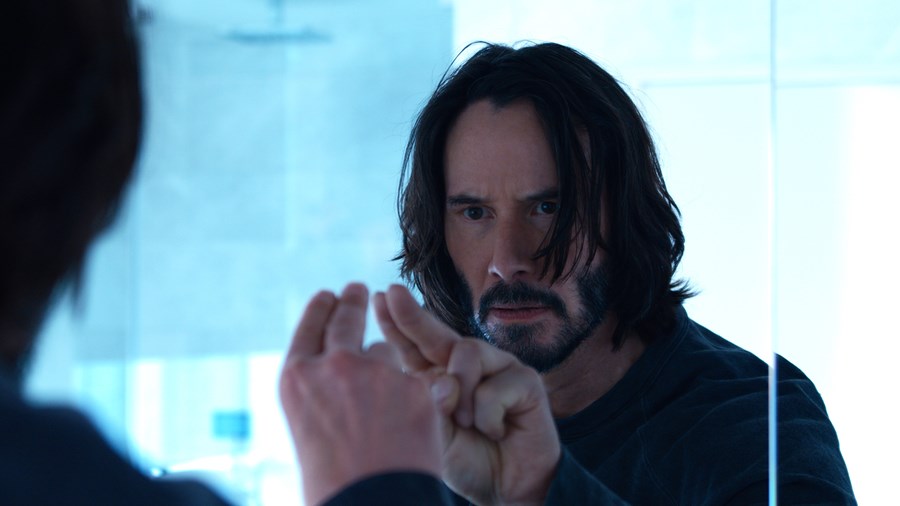
The Matrix Resurrections (2021)
Hollywood films certainly do have a lot to answer for when it comes to proliferating certain conspiracy theories. The Matrix (1999) is the most obvious example with its notion that we are living inside a controlled simulation. Its red pill or blue pill dichotomy has also been adopted by the alt-right and incel movement, to directors Lilly and Lana Wachowski’s frustration. Indeed, much of the recent sequel The Matrix Resurrections (2021) can be interpreted as their dismay over the way their film has been misunderstood. In contrast, director Roland Emmerich is clearly more intentionally responsible for encouraging various different conspiracy theories and even likes to feature conspiracy theorists as heroes in his films. Independence Day (1996) certainly threw fuel on the idea that the American government is concealing evidence of alien life, in 2012 (2009) he presented the apocalypse as predicted by an ancient Mayan calendar, and in Moonfall (2021) the Moon is revealed to be some kind of megastructure created by the human race’s more technologically advanced ancestors.

Anonymous (2011)
Though Emmerich doesn’t purport that any of these films have any truth to them, in Anonymous (2011) he argues much more explicitly that Edward de Vere, the Earl of Oxford, was the real author of Shakespeare’s collected works. To the consternation of academics and historians, Will Shakespeare (Rafe Spall) is presented as an oaf who is simply too working class to have written such extraordinary work. The Earl (Rhys Ifans) also turns out to be the bastard son of Elizabeth I (Vanessa Redgrave), with whom he then has an incestuous affair and sires his own lovechild. No wonder historians were cross. As with the Moon landing theory, you could certainly question whether there’s any harm in making these outlandish claims. But a decade ago the idea that a former President could instigate an insurrection over patently false claims that an election had been stolen from him would have been unimaginable.
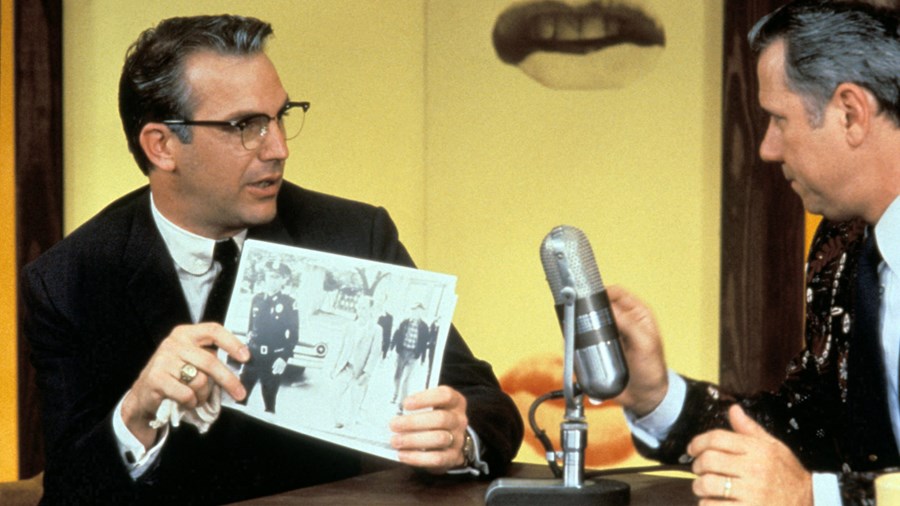
JFK (1991)
Probably the most significant conspiracy film ever made remains Oliver Stone’s JFK (1991), starring Kevin Costner as real-life district attorney and conspiracy theorist Jim Garrison. As portrayed in this three-hour epic, Garrison came to believe that President Kennedy’s assassination was orchestrated by the CIA and military and business interests in order to prolong the Vietnam War and the Cold War. Stone claimed that he was merely offering a ‘counter-myth’ to the accepted narrative of 22 November 1963, but the film was hugely controversial at the time for its liberal attitude towards the facts. Today, the film feels akin to a guilty pleasure. It’s as enthralling as ever and features a truly exceptional performance from the late, great Donald Sutherland as enigmatic government insider ‘X’. And yet, unsurprisingly, it seems to be a firm favourite for the far-right followers of QAnon, for whom the establishment is really a cabal of cannibalistic Satan worshippers.
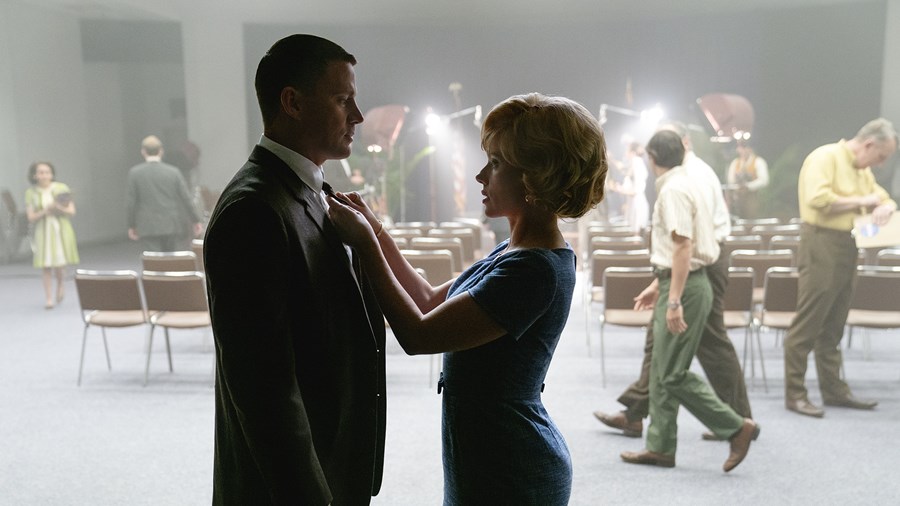
Fly Me to the Moon (2024)
Some conspiracy theories are just a bit too wacky for Hollywood, at least for the moment. No mainstream production has yet had a crack at depicting flat earthers, chemtrails, the theory that Lady Diana Spencer was murdered by the Royal Family, or that former One Direction bandmates Harry Styles and Louis Tomlinson have been secretly married for years. ‘The truth is still the truth, even if nobody believes it,’ Kelly says to Cole in Fly Me to the Moon. ‘And a lie is still a lie, even if everybody believes it.’ Let’s hope that in the post-truth world we live in, cinema is able to help us tell the difference between truth and lies.
WATCH FLY ME TO THE MOON IN CINEMAS


